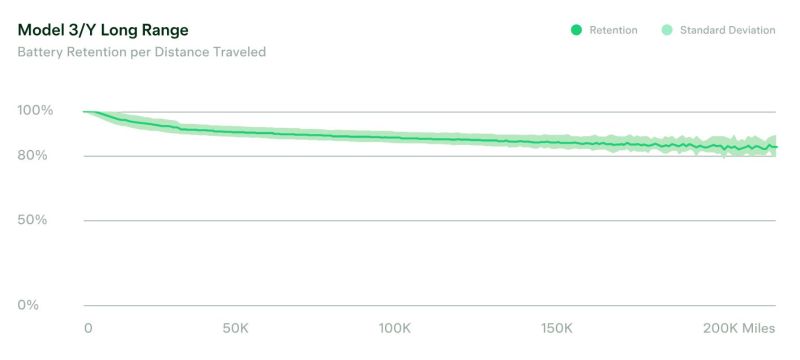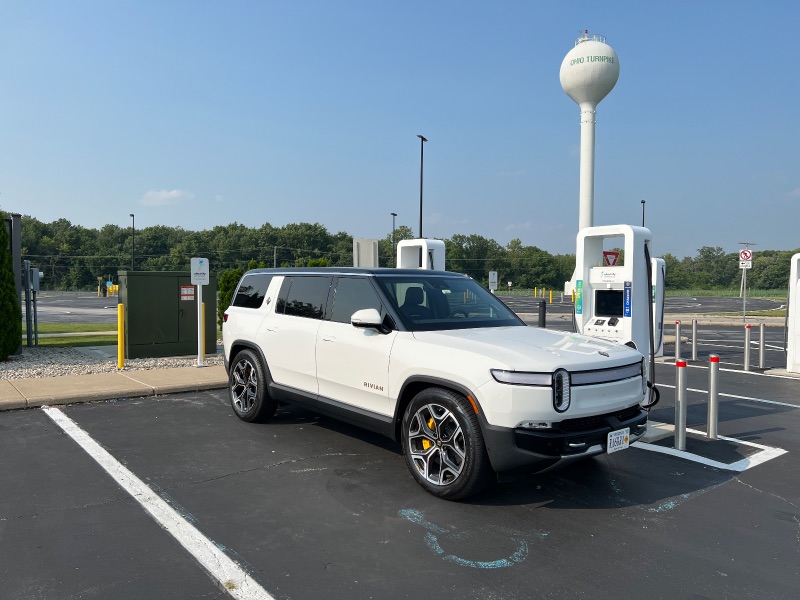Tesla recently released its 2023 "Impact Report", which includes a look at the decline in battery capacity in its best-selling Model Y and Model 3. In the report, there is a graph of battery capacity degradation as a function of mileage, which shows that the batteries of these vehicles are losing their capacity very slowly.
This is the first time Tesla has ever published similar data for the Model 3 and Model Y. Until now, it has focused on its older Models S and X, which have been on the market longer. Tesla said it will release a report on battery degradation for the Model 3 and Y once it has enough relevant data. And that data now shows that even after driving 320,000 km / 200,000 miles, the Model 3 and Model Y batteries are losing only 15% of their original capacity on average. By comparison, for the Model S and Model X, this loss is only 12%.
Tesla confirms that the batteries in its electric cars do not need to be replaced due to a loss of capacity, but only in the event of mechanical damage or other failure, which is very rare. The company refers to more than a decade of experience in selling electric vehicles and a reliable data set.
The battery capacity degradation graph for Models 3 and Y shows that even after 320,000 km / 200,000 miles, these batteries lose on average only 15% of their original capacity.


 Tomas
Tomas

 Tomas
Tomas





 dongruike
dongruike
 bbonkk
bbonkk
 TJWhiteStar
TJWhiteStar
 Ant
Ant
 libor&wheels
libor&wheels